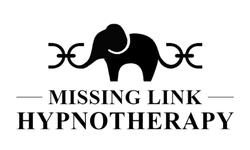Is Hypnotherapy Helpful for Fibromyalgia?
Category: Uncategorized
- 08 Sep 2023
- Posted By WebSiteAdmin
The answer to this should become clearer after understanding what Fibromyalgia is, what causes it, and after reviewing fibromyalgia research studies.
What is Fibromyalgia?
Fibromyalgia is a chronic pain disorder characterized by widespread musculoskeletal pain and fatigue and often accompanied by cognitive and psychological disturbances. It is considered to be a neurosensory condition where there is a disorder in the processing of pain in the brain.
The pain involves both sides and the upper and lower parts of the body.
It is often accompanied by:
Fatigue: Patients with Fibromyalgia have a sleep disturbance characterized by sleeping lightly and frequently awaken feeling unrefreshed in the morning.
Cognitive Disturbances: Often referred to as “fibro fog,” patients have difficulty with attention and concentration and doing tasks that require rapid changes in thought.
Other symptoms: Stress, anxiety and or depression, headaches, headaches, gastrointestinal symptoms including IBS and gastroesophageal reflux disease (GERD).
What Causes Fibromyalgia?
Although Fibromyalgia is considered to be a chronic pain disorder with an unknown etiology, we know it is triggered and aggravated by physical and/or emotional stressors, which include emotional trauma.
While some studies have shown a genetic predisposition for Fibromyalgia, a definitive gene has not been isolated and these studies are inconclusive.
Research is now emerging that suggests that Fibromyalgia is due to a disorder of pain regulation and an altered way the brain processes pain. Due to what is called “Central Sensitization,” patients with Fibromyalgia become hypersensitive to the perception of pain.
Although there are no diagnostic lab tests for Fibromyalgia, abnormalities found that can help explain this Central Sensitization include:
Elevated Substance P
Decreased levels of serotonin and norepinephrine.
Dysregulation of dopamine
Alteration of the natural brain opioids.
Traditional Medical Treatments for Fibromyalgia
The traditional medical treatment approach for patients with fibromyalgia includes education, an exercise program, and medications.
Patient Education
This begins by reassuring the patient that Fibromyalgia is a real disease.
Instructions on Sleep Hygiene
This includes going to bed and getting up at the same time, making sure your bedroom is quiet, dark, relaxing and at a comfortable temperature. Remove electronic devices such as TVs, computers, and smart phones from your bedroom, avoid large meals, caffeine, and alcohol before bedtime.
Exercise
Walking and swimming are recommended for a minimum of 30 minutes three times per day.
Water-based exercises and yoga have also been found to be useful in a few studies.
Walking, Swimming, Yoga, Pilates, Tai Chi, and Qi Gong are also recommended.
Medications for Fibromyalgia
Medications most prescribed include certain antidepressants and anticonvulsants.
The antidepressants include tricyclic medications, like amitriptyline and other selective serotonin reuptake inhibitors (SSRIs) and norepinephrine reuptake inhibitors (SNRIs), including duloxetine and milnacipran.
Beneficial anticonvulsants include gabapentin and pregabalin.
Currently, the three medications that are approved by the US Food and Drug Administration (FDA) for the treatment of fibromyalgia which are pregabalin, duloxetine, and milnacipran.
The problem is that, as we saw, fibromyalgia results in abnormalities in Substance P, dopamine, natural brain opioids, etc. Correcting one or two of these will not often correct the underlying cause and taking medications to correct the symptoms may require their long-term use.
Medical Treatment for Persistent Symptoms
A combination drug therapy can sometimes be helpful for patients not responsive to a single medication.
Participation in a supervised physical exercise program for patients who have difficulty reaching a sufficient level of low-impact aerobic exercise.
Psychological interventions can be beneficial in patients with inadequate responses to initial treatments.
Some studies have shown benefits with neuromodulation techniques like transcranial stimulation, occipital and C2 nerve stimulation, and transcutaneous electrical nerve stimulation.
Although these approaches are helpful for many people, some people continue experiencing the debilitating consequences of fibromyalgia. It is therefore up to us to find a safe and effective treatment for fibromyalgia.
Natural and Alternative Treatments for Fibromyalgia
Natural supplements like Vitamin D, magnesium, S-Adenosyl-L-methionine (SAMe) and creatinine, acupuncture, massage, yoga, Tai Chi, Qi Gong can sometimes be helpful.
The problem with taking supplements is that even they are sometimes ineffective. Even when they are, until the underlying problem is identified and corrected, they may need to be taken on an ongoing basis which can be quite costly.
Finding a Safe and Effective Treatment for Patients With Fibromyalgia Who Fail to Respond to Other Treatments
The trouble is, that many patients fail to respond to these approaches.
To help avoid the ongoing costs of medications or supplements, a long-term solution is necessary.
When trying to find a safe and effective treatment for long-term results for those patients who fail to respond to the Traditional Medical Approach, it is important to help determine the root cause as accurately as possible. As we do this, we see one common factor conspicuously appearing in many of the signs and symptoms of fibromyalgia. This “Invisible Elephant” causing many of these other signs and symptoms is stress, and the anxiety resulting from this stress.
We know that anxiety accompanies fibromyalgia. We know that anxiety can cause mood and sleep disturbances. Anxiety can also alter serotonin, norepinephrine, dopamine, natural brain opioid, and Substance P levels and can cause Central Sensitization. The reason selective serotonin reuptake inhibitors (SSRIs) and norepinephrine reuptake inhibitors (SNRIs) are sometimes effective is because they help normalize these levels of serotonin and norepinephrine.
According to an article published in Harvard Health Publishing, on September 16, 2021, each of these contributes to abnormalities in the pain signaling in the brain and nervous system.
The “fibro fog” is believed to be caused by poor sleep. Poor sleep can result in reduced levels of Substance P which can cause more pain and more pain can cause worse sleep thereby creating a vicious cycle of worse pain and sleep.
Other explanations for “fibro fog” are that the increased stress resulting from the original physical or emotional triggers and compounded by the pain of fibromyalgia creates anxiety. This anxiety takes up mental resources requiring additional energy to maintain mental focus. It can make you feel like you are in a constant battle with your anxious thoughts to maintain focus. This can make it more difficult to concentrate and think clearly.
Since patients with fibromyalgia are 74% more likely to experience depression and 60% more likely to experience an anxiety disorder, it is vital to target the root psychological drivers of these thought patterns which is anxiety.
So, as we can see, the “Missing Link” in the treatment of fibromyalgia comes from the effective treatment of the root causes of anxiety for each person.
Treating Root Causes of Anxiety
So now that we know that a root cause of fibromyalgia is anxiety, the question now is, what is a safe and effective treatment for this?
We know that among people who are exposed to the same stressful situation, some may experience anxiety while others are completely calm. From this we know that stress is not necessarily the main problem. The main problem is how our unconscious mind processes this stress.
We also know that one way to target how the unconscious mind processes this stress is by using Hypnotherapy and if so, does the medical literature support this?
What is Hypnotherapy?
Hypnotherapy is a therapeutic technique that induces a heightened state of concentration and relaxation in which the subconscious mind is more accessible. During hypnotherapy, the patient is more receptive to suggestions and can potentially make cognitive and behavioral changes to address various health conditions. Pain signals and the thoughts regarding stress responsible for emotional states like anxiety and depression are all controlled by the subconscious mind which are the main drivers of fibromyalgia.
How May Hypnotherapy Help Patients with Fibromyalgia?
While the exact mechanism remains uncertain, several theories have been made:
- Altering Pain Perception: Hypnotherapy may help modulate the perception of pain in the brain, thereby making it less intense.
- Relaxation Response: Hypnotherapy can help trigger a deep state if relaxation. This state can be anchored in a way that helps it become accessible during daily life. This relaxation may help reduce muscle tension and pain.
- Cognitive Reframing: By helping patients to view their pain and symptoms from a different perspective, hypnotherapy may change how patients react and cope with their residual symptoms.
Is Hypnotherapy Helpful for Fibromyalgia?
Now that you have a better understanding of fibromyalgia, and what causes it, you can probably answer this question already.
But let’s review the hypnotherapy research to see if this is confirmed by clinical studies on Fibromyalgia.
Hypnotherapy for Fibromyalgia: What Does Research Show?
Reduced Pain and Improved Sleep: Several studies have shown that patients with fibromyalgia who have undergone hypnotherapy report reduced pain levels and improved quality of sleep.
In a study published in the European Journal of Pain, patients who received hypnptherapy reported significant pain reductions compared with controls. It was also found that hypnotic induction can readily modulate the subjective experience of pain.
So, in a condition in which modulation of pain is a primary cause, it seems that a treatment that has been proven to do this should be seriously considered.
Eur J Pain. 2009 May;13(5):542-50. Fibromyalgia pain and its modulation by hypnotic and non-hypnotic suggestion: an fMRI analysis
Stuart W G Derbyshire , Matthew G Whalley, David A Oakley
…………………………………………………………………………………………………………………………………………………………………………………………………………………………………………………………………………
A study reported in The Journal of Rheumatology involving 40 patients who failed to successfully respond to other treatments found that compared with the patients in the physical therapy group, the patients in the hypnotherapy showed a significantly better outcome with respect to their pain experience, fatigue, sleep pattern and patient overall assessment of outcome. It concluded that hypnotherapy may be useful in relieving symptoms in patients with refractory fibromyalgia.
J Rheumatol. 1991 Jan;18(1):72-5. Controlled trial of hypnotherapy in the treatment of refractory fibromyalgia. H C Haanen , H T Hoenderdos.
………………………………………………………………………………………………………………………………………………………………………………………………………………………………………………………………………….
A Randomized Controlled Trial found that patients who underwent hypnosis reported global improvement in how they felt and a significant improvement in sleep and in cognition.
Int J Clin Exp Hypn. 2013;61(1):111-23. Hypnosis for management of fibromyalgia
Pascale Picard , Catherine Jusseaume, Maryse Boutet.
………………………………………………………………………………………………………………………………………………………………………………………………………………………………………………………………………….
Improvement in Depression and Anxiety:
Several studies have shown that hypnotherapy can be helpful for anxiety and depression which are often components of fibromyalgia.
Medical News Today: Does hypnosis work for anxiety, depression, and fear?
Conclusion:
So, as we can see, although the medications can be helpful for many patients with fibromyalgia, some patients continue to experience symptoms.
Instead of becoming discouraged, it is helpful to have the attitude of Thomas Edison who said, “Never get discouraged if you fail. Learn from it.”
If one treatment approach isn’t working, learn from it, and choose a different approach.
The best results can often result from gaining a better understanding of the problem.
Hopefully, this article can help you in your goal of having a much better quality of life.

